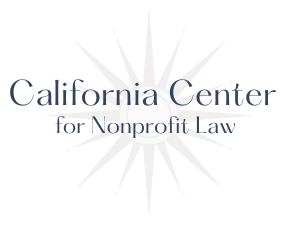
How California SB 1454 Affects Your Church Security Team
California Senate Bill (SB) 1454 went into effect on January 1, 2025. This bill updates the Proprietary Security Services Act, which is a portion of the California Business and Professions Code. SB 1454 has raised issues about how the Bureau of Security and Investigative Services (BSIS) will enforce the law as applied to churches who employ a private security force consisting of uniformed and paid security personnel.
The primary issue for churches is the portion of the law that removes licensing exemptions for charitable and philanthropic organizations. Historically, churches have used this long-standing exemption to avoid falling within the purview of the Proprietary Security Services Act. However, it now appears that churches may be subject to the Act when they employ private security officers.
California Business and Professions Code § 7574.01(g) defines a “proprietary private security officer” (PPSO) as “an unarmed individual who is employed exclusively by any one employer whose primary duty is to provide security services for their employer, whose services are not contracted to any other entity or person, and who is not exempt pursuant to Section 7582.2, and who meets both of the following criteria:
(1) Is required to wear a distinctive uniform clearly identifying the individual as a security officer.
(2) Is likely to interact with the public while performing their duties.
Under this newly enacted state law, all PPSOs must register with the BSIS. Judging from the plain language of the statute, this requirement now applies to private security officers working for churches. Furthermore, all PPSOs must complete certain required training. Finally, PPSOs at churches now may be subject to other state law requirements, such as those involving insurance and the classification of workers.
Arguably, SB 1454 may apply not only to security officers paid by churches, but also those who are volunteers. Under the language of the amended statute, as long as security officers wear a shirt or uniform identifying them as security officers and are likely to interact with the public, they may be subject to regulation as PPSOs, even if they are volunteering their services. Since religious organizations or churches are not exempt under Section 7582.2, then those volunteers are not exempt from the law.
The implications may be even more serious for armed security officers that either volunteer or are paid by churches for their services. According to a recent inquiry response by BSIS, armed security officers must be licensed through a Private Patrol Operator (PPO), have a BSIS firearms permit, and a carrying a concealed weapon (CCW) permit. Furthermore, BSIS refused to state in the inquiry that church security – whether volunteer or paid – were exempt from the licensing requirements in the law, referring instead only to a “charitable philanthropic society” no longer being exempt.
The bottom line is that the amended law appears to apply the requirements for PPSO to private security officers at churches, whether they volunteer or are paid for their services. While it may seem easy to avoid application of the law by not having your security team wear any type of uniform, doing so may be dangerous for your security officers and others. For instance, uniforms help prevent injuries by helping security officers avoid being mistaken for shooters during active shooter events. Additionally, if you have armed security officers, whether volunteer or paid, they are likely subject to the PPSO and BSIS firearms permit rules.
Questions About SB 1454? Call the Church Law Center Today
The laws that govern churches, religious organizations, and charitable organizations are complex and ever-changing. We aim to inform you of all legal issues that have the potential to affect your church or organization. If you need legal advice or assistance, we are here to help. Contact an experienced nonprofit lawyer today. Call the Church Law Center offices at (949) 892-1221 or visit us online for more information today. We offer a wealth of experience handling the unique legal issues that church, nonprofits, and charitable organizations routinely face.
